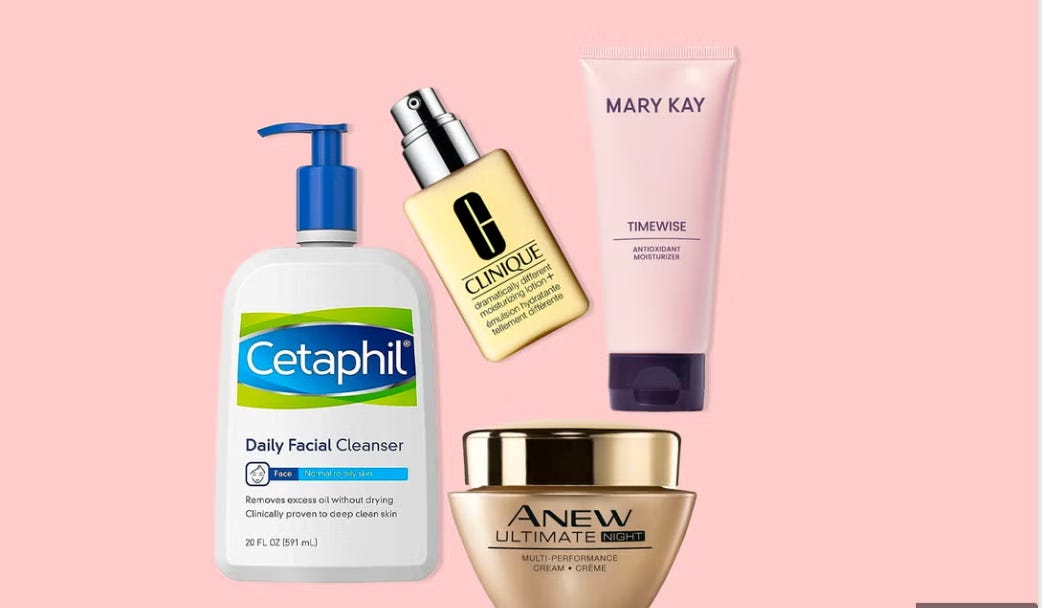E-Commerce Skincare Market in Nigeria; Let's Talk
I bought skincare from three different e-commerce vendors and my experience showed me some insights that can be learned from.
Last week, I went skincare shopping, interestingly, because of the nature of the product I wanted to buy, I had to shop from three different vendors simultaneously. It has allowed me to experience the Nigerian e-commerce skincare market, which many consumers believe is in demand. The Nigerian skincare market is projected to generate revenues of up to $2.52 billion in 2025 and reach $4.5 billion by 2028. The current numbers and projected figures of this market resemble an industry that everyone should learn from, which is why I wrote this article.
Who are the major players in Nigeria, and how are they winning the hearts and minds of Nigerians? Let’s dissect it.
The Players: Old Giants, Local Disruptors, and Global Trendsetters
The market is a battleground for legacy giants such as Unilever, PZ Cussons, and L’Oréal. These are brands that have dominated the market for as long as possible. Still, the real excitement is in the rise of local brands and the retailers who sell them. Players like Shea Tribe, Arami, and House of Coco are building loyal communities around natural, African-inspired products. But there’s another layer: the retailers bringing global trends, especially Korean skincare, to our doorstep in Nigeria. A look at X would reveal the extent of chatter surrounding this category of products.
Retailers like Coco Sherry and BuyBetter have evolved the skincare landscape for Nigerian consumers. No longer do we have to rely on a cousin travelling abroad or risk buying fakes from sketchy Instagram sellers. These stores curate shelves with Korean cult favourites—CeraVe, COSRX, Some By Mi, etc. —and make them accessible both online and in physical stores at the most competitive prices, which can sometimes be ridiculous, honestly. Their promise? Authenticity, education, and a taste of the global skincare conversation, right here in Lagos or Abuja.
What Sets the Winners Apart?
Authenticity and Trust: In a market plagued by counterfeits, retailers like BuyBetter and Coco Sherry win by guaranteeing genuine products and educating customers about what’s real and what’s not.
Community and Content: The smartest brands don’t just sell, they teach. From blog posts to Instagram Lives and social media posts, they break down ingredient lists and help us determine which serums or toners actually work for our skin. They sometimes even do this in partnership with opinion leaders, who are often referred to as Influencers.
Omnichannel Convenience: Whether you want to walk into a store or order from your phone, these retailers meet you where you are. Fast delivery, flexible payment, and easy returns are becoming the norm.
Local Relevance: Homegrown brands are thriving by tapping into Nigerian skin needs and celebrating our unique beauty, while international retailers keep us plugged into global trends.
The Challenges: Trust, Logistics, and Price
It’s not all rosy. Many shoppers still worry about fakes, high delivery fees, and the hassle of returns. And while the market is growing, the experience can be hit or miss, especially outside the big cities. Before I placed my orders, I had to ask around to ensure I was buying from stores that retail original products. Additionally, there was a logistics challenge, which made the buying experience somewhat difficult.
What’s Next? Lessons???
For founders and marketers, the lesson is clear: authenticity, education, and community are your competitive edge. Nigerian consumers are savvy and demanding. If you want to win, you must build trust, deliver consistently, and never underestimate the power of a good product recommendation from someone who genuinely understands your product.
The Nigerian e-commerce skincare market is growing rapidly, driven by a new generation that seeks the best, whether local or global, delivered with honesty and care. The brands and retailers who get this right won’t just win the market; they’ll shape the future of beauty in Nigeria.




